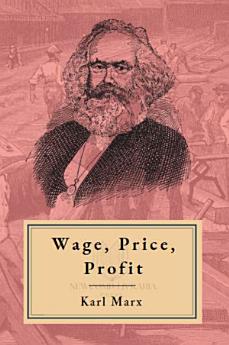Wage, Price, Profit
About this ebook
Though lacking the formal abstraction of Das Kapital, the work moves with similar conceptual rhythms, in which surface appearances—prices, wages, profits—conceal deeper relations governed by labor-time and the appropriation of surplus. Marx’s insistence that capital is not a thing but a social relation finds a clear expression here, and the didactic tone does not dilute the metaphysical undertow: value remains an abstraction animated by labor, and the capitalist system a self-expanding totality whose logic appears autonomous. Framed as a practical rebuttal, the text nonetheless retains the structural rigor of dialectical exposition, offering a compressed glimpse into the machinery of accumulation and the illusion of “fair exchange” under wage labor. This edition supplements the primary text with reference materials that contextualize Marx’s philosophical lineage and clarify his terminology, making visible the intellectual scaffolding behind its economic clarity.
This modern Critical Reader’s Edition includes an illuminating afterword tracing Marx’s intellectual relationships with revolutionary thinkers and philosophers (including Hegel, Feuerbach, Engels, and Ricardo), containing unique research into his ideological development and economic-metaphysical theories, a comprehensive timeline of his life and works, a glossary of Marxist terminology, and a detailed index of all of Marx’s writings. This professional translation renders Marx’s dense, dialectical prose into modern language to preserve the original force and precision of the text. Combined with the scholarly amplifying material, this edition is an indispensable exploration of Marx’s classic works and his enduring Hegelian-Protestant influence in the political, religious, economic, and philosophical spheres.










